

Feng Shui design for Australian homes
Feng Shui is an ancient Chinese home decorating art. It has been traced back to as early as 960B B.C. The key principles of Feng Shui are balance, harmony, and flow. T
What is Feng Shui?
Feng Shui is an ancient Chinese home decorating art. It has been traced back to as early as 960B B.C. The key principles of Feng Shui are balance, harmony, and flow. To achieve this, Feng Shui dictates the arrangement of objects in an environment in a particular way that channels the energy of the five elements.
Feng Shui rests foundationally on a concept of the five elements: water, earth, fire, metal and wood. Each of these elements must be represented in a room for that room to have the appropriate energy balance. Feng Shui is an endeavour to create harmony between the five elements – a practice which many believe can improve your physical, mental and spiritual health as well as bring good fortune.
Most of the items in a room will lean towards one of the five elements. For example wooden furniture, timber floors and timber feature walls are all wood-leaning. Metal often makes its way into the home in the form of sculptures, furniture, fixtures or technology. Earthen influences include plants, rocks, crystals, dirt, and landscaping imagery. The most popular way to include a fiery element into the home is candles or (if you are lucky enough to have one) inside a fireplace. Water is also a common feature of the home, from mini fountains and features to the reflective surface of a mirror.
The placement of your décor actually matters a great deal. Layout is an important part of Feng Shui, as different areas represent different things. The cardinal directions also have huge significance for energy flow, so you should make sure to keep them in mind when arranging your elements. Here is a breakdown to help you understand how to apply Feng Shui in an Australian home.
How to Feng Shui your home: The fundamental principles of Feng Shui for Australian homes
12. Office feng shui
Feng Shui is an excellent methodology to use for office decoration. Because Feng Shui focuses on natural elements and the flow of natural energy, it can make an industrial office cubical feel like a much calmer and organic environment. This is great for productivity and individual health (see the proven health benefits of house plants).
Incorporating Feng Shui into your office is not difficult. There are a few simple strategies you can use such as:
- Layout – place your desk at the furthest spot from the room’s entrance. This is the “power position.” You should be able to see the door when seated. This will help with energy flow by channelling the productive energy of the office towards your desk in a focused stream.
- Elements – incorporate an item representing each of the five elements into your décor. A simple and easy combination would be: a small house plant, a timber photo frame, a mirror, a candle and your computer.
11. Kitchen
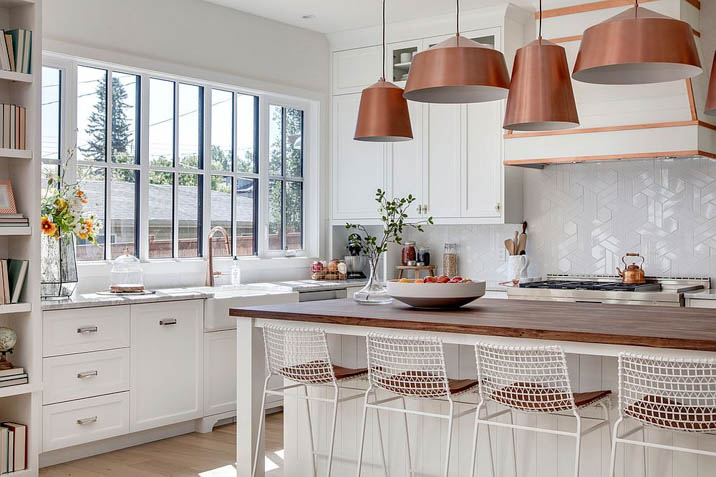
The kitchen is a very significant room when it comes to Feng Shui. Kitchens are considered the centre of health and wellness in the home. They are one of the trinity rooms which facilitate positive energy. Kitchens represent fire. As such, they are best placed at the back of the home in the south/southeast or north/northeast areas. A kitchen in the centre of the home may represent fire in its heart, producing anger and negative energy. Consult the Bagua Map for more.
10. Living room
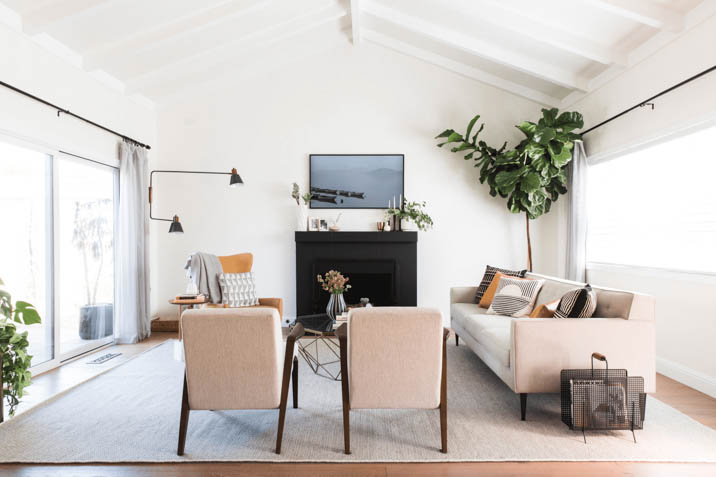
The living room needs a seamless sense of flow from all five elements. Bring them into the space in the forms mentioned above or experiment with some more creative choices – it’s all up to you. Balanced lighting, deliberate staging and conscious layout will go a long way to creating five points of harmony.
09. Plants
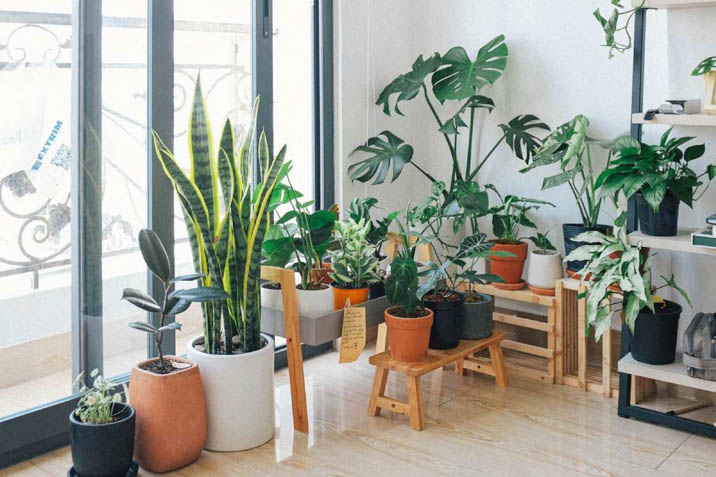
There are a few rules regarding the placement of plants in Feng Shui. Plants are considered to have Wood energy, so they should be placed in the East, South and Southeast places of your home. This will promote wealth and prosperity. You can also apply these principles to an outdoor garden.
08. Front door
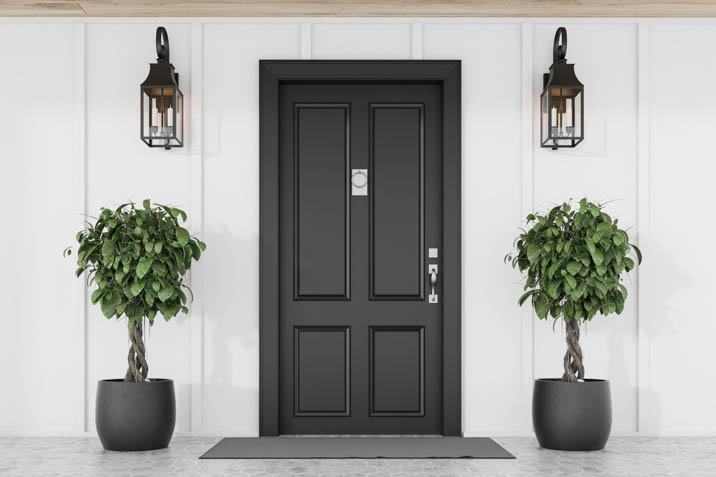
A Feng Shui house should always have a strong front door. The front door symbolizes the mouth of qi, a significant spiritual concept which manifests how energy enters the home.
07. Colours
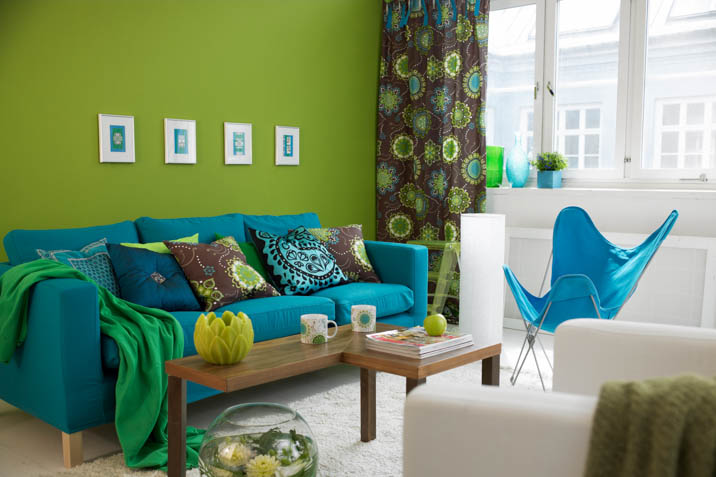
Colour is very deeply linked to the principles of Feng Shui. They can be used to adjust energy. For example – red is a stimulator, orange promotes happiness, gold symbolizes power and green represents growth/new beginnings. For more on colour theory in design, see here.
06. Bedroom
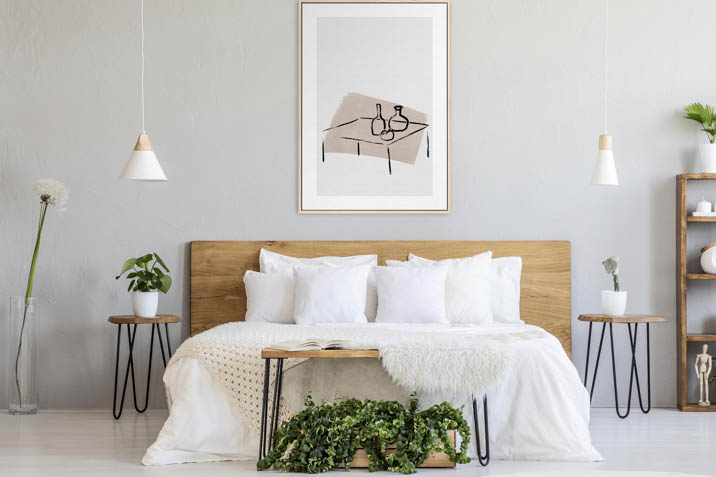
Bedroom layout is an important part of Feng Shui. The bed should be in the “command position” – a position whereby you can see the entry door whilst lying on the bed. Headboards are also important as they symbolize support and stability.
05. Metal
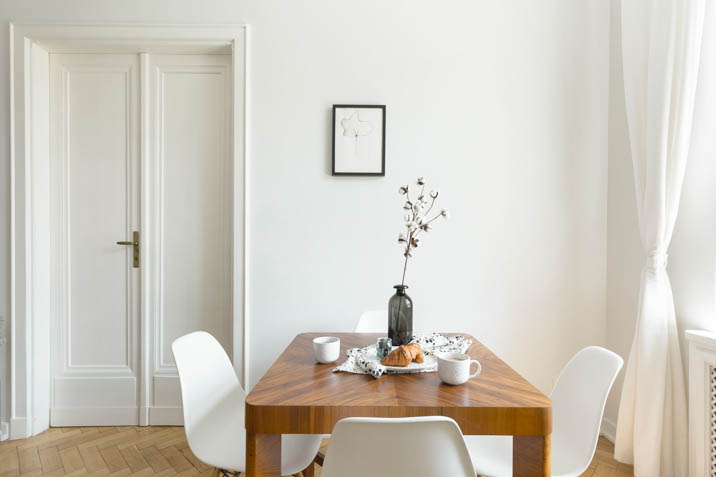
Metal is perhaps the most difficult element to incorporate into a Feng Shui décor scheme. It is very powerful and represents righteousness, integrity and clarity. Some subtle ways to balance metal in your feng shui home include windchimes, picture frames, furniture and lighting.
04. Wood
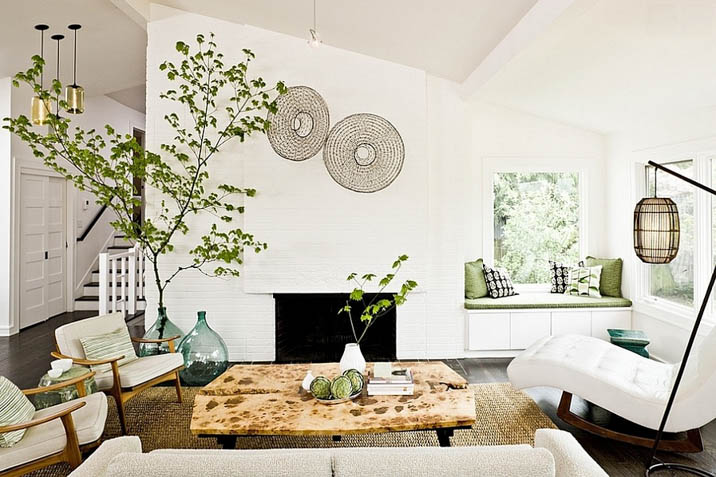
Wood is another powerful element. Too much wood can be overwhelming. Used correctly, channelling wood energy can improve spiritual wealth and growth of kindness. Desks, furniture, flooring and art are all great ways to bring balanced wooden energy into your home.
03. Fire
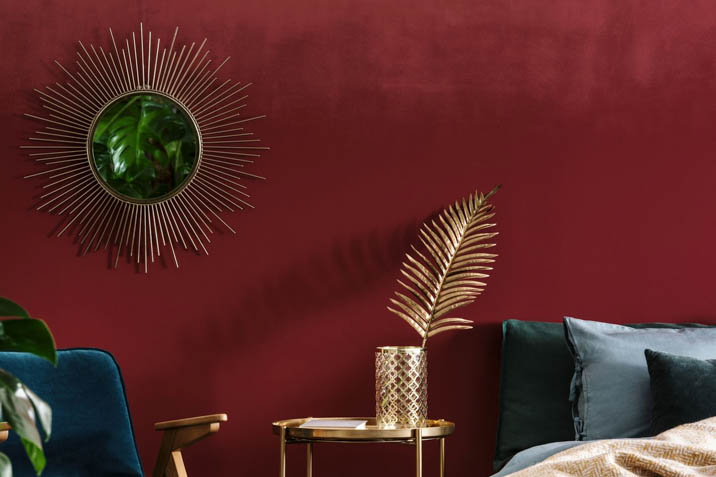
Fire can be difficult to incorporate safely into décor. Luckily, candles are an easy way to keep the flame burning and direct harmonized energy around your room. Fire can also be represented by warm, powerful colours such as red and gold.
02. Earth
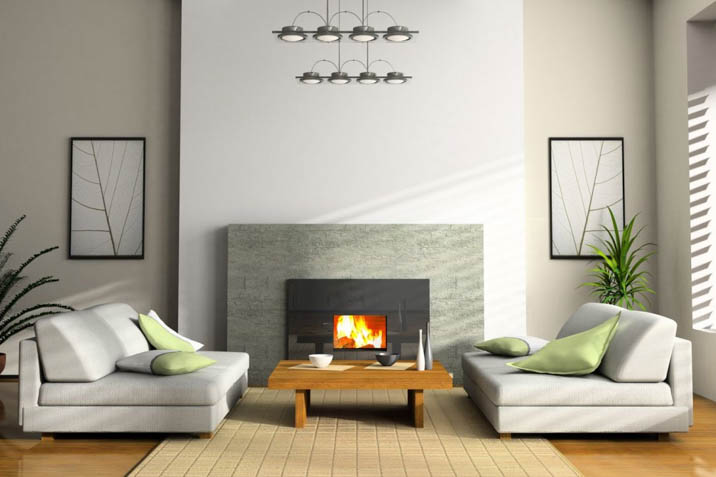
Earth is a strong, stoic element. It can be represented by grounded shapes such as square pillows and sturdy, low furniture. Earth is represented by the colour yellow and is best channelled in the northeast and southwestern parts of a home.
01. Water
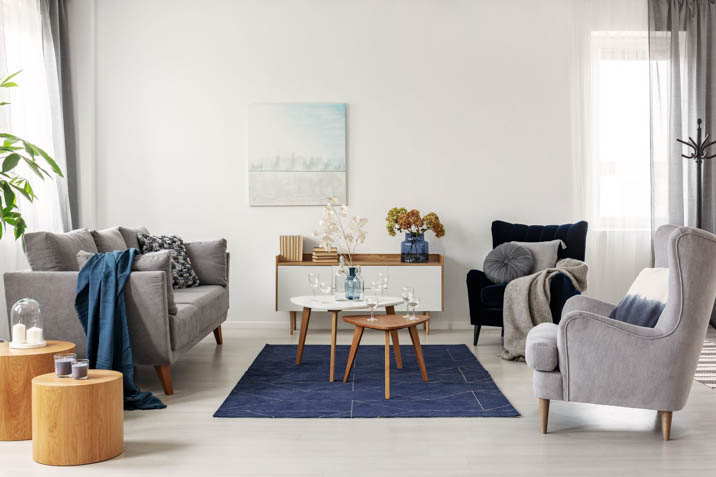
There are a few strategies that will allow you to include water elements into your Feng Shui space without having to install an indoor pool. The simplest one is colour; water can be represented with black and blue colour schemes. A fish bowl is another option, as well as a mini water feature.
However, the best use of the water element in a Feng Shui home is in mirrors. The reflective surface of a mirror is similar to that of water, so including a large mirror in your living room can help to balance out the energy of other elements. Water is an especially important part of Feng Shui as it represents prosperity, abundance, intuition, and wisdom.



